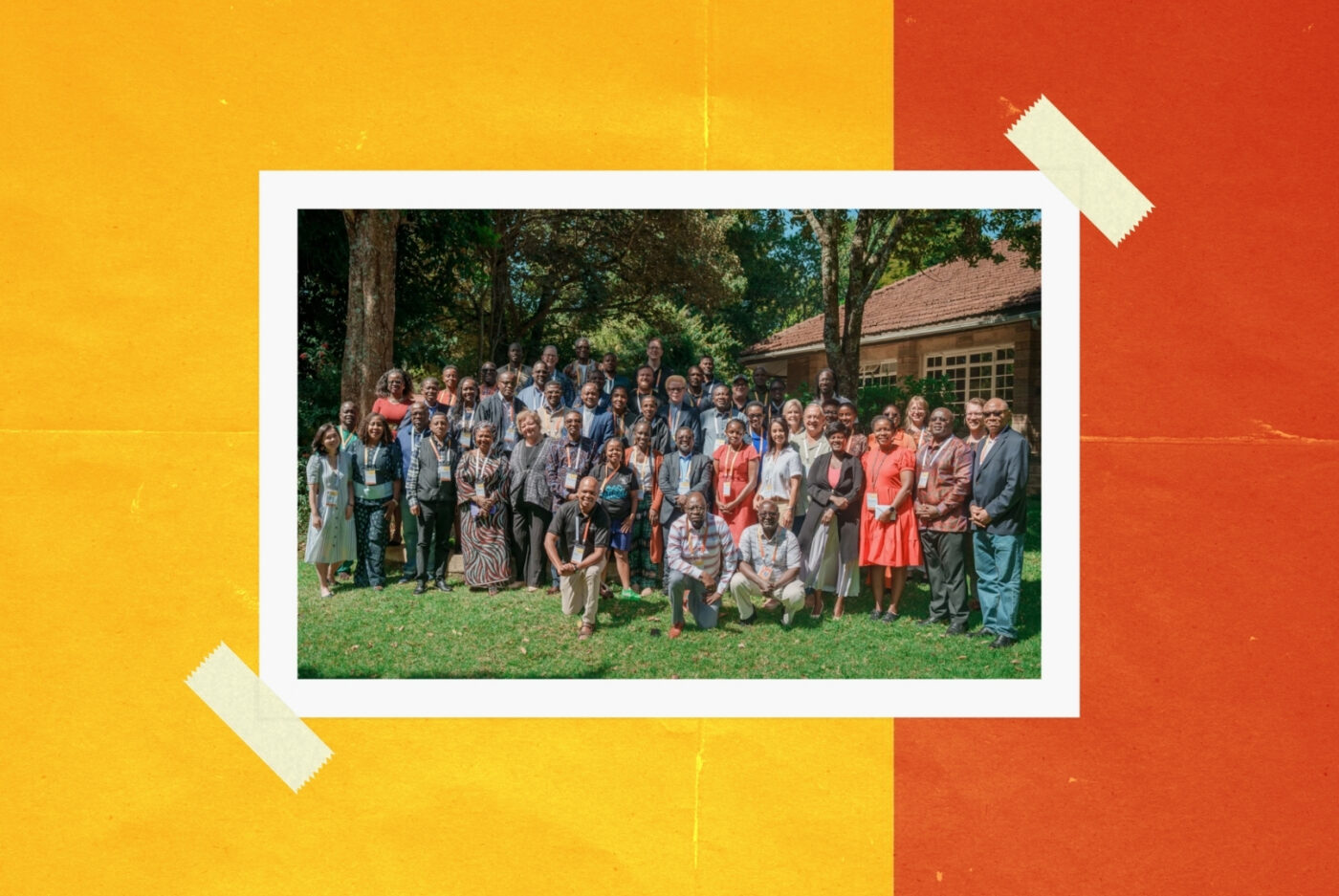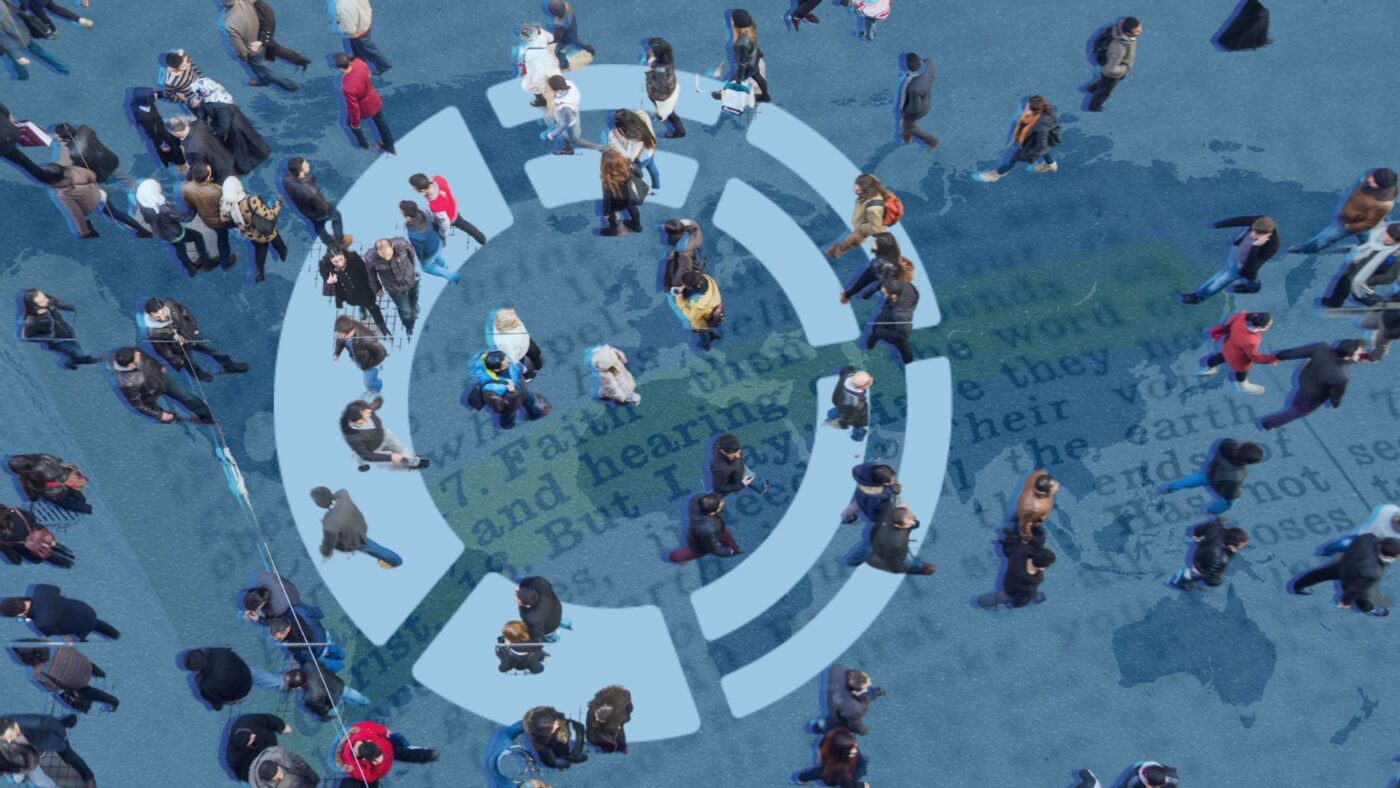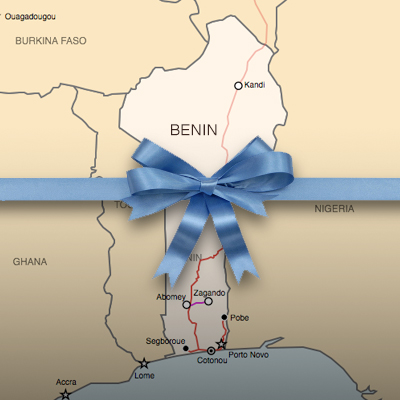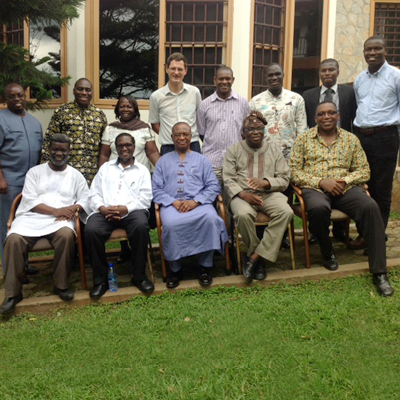Polycentric Resource Mobilization
Biblical Call to Generosity
The biblical call to generosity is a central theme throughout the Bible. It emphasizes the importance of embracing and living out our identity as stewards of God’s world, stewards of financial resources, stewards of our relationships, and stewards of the gospel.
Today, significant numbers of Christians worldwide are responding to the biblical call to generosity by giving to their local churches and for fulfilling the Great Commission. Many are going beyond just giving financially to kingdom work. They are praying for mission workers and caring for them. They are volunteering their time to serve local causes and are witnessing for Christ to their families, in their workplaces and local communities.
The biblical call to generosity is a central theme throughout the Bible.
Although it is easy to paint a rosy picture of Christians embracing the biblical call to be generous, we would do you a disservice if we did not acknowledge another dimension of this reality. As our world continues to experience dramatic change, significant shifts are also affecting every aspect of Christian ministry including how Christians give to God’s mission.
- The church worldwide has the financial resources to fulfill the Great Commission, but it is failing to do so. According to research by ‘The Centre for the Study of Global Christianity’ at Gordon-Conwell Theological Seminary, the annual income of all church members worldwide in 2022 was $53 trillion. However, giving to any Christian causes was $896 billion, while giving to missions was $52 billion. This is only 5.78 percent of the money given to Christian causes of any kind.
- The kind of activities that inspire Christians to give are changing. A whopping 94 percent of all giving in 2022 stayed mostly in the Christian countries. Eighty-two percent of this giving went towards local churches and 12 percent of the giving was directed to ‘Home missions’ in the same Christian countries.
- Although Christians are generous, they are not investing significantly in fulfilling the Great Commission. Only 6 percent of Christian giving is directed towards mission amongst non-evangelised or unreached people groups. In fact, only 1.7 percent of giving is directed towards reaching the unreached with the gospel.
- The ways in which new generations of Christians are being generous are changing. For example, millennials and Generation Z are giving differently compared to Baby Boomers or Generation X-ers.
- In some parts of the Global North giving to churches is declining and in parts of the Global South the church has not yet developed authentic biblical teaching on generosity.
- Growing numbers of churches and ministries are competing for a limited pool of resources without much understanding of how to engage in raising funds effectively.
As R. Mark Dillon puts it, ‘Successful leaders must possess the theological vision to recognise the necessity of asking, the joy of giving, and the beautiful collaborative nature of advancing the kingdom.’1
In this article we delve into some of the challenges for promoting biblical generosity and raising funds for fulfilling the Great Commission in different parts of our world.

Challenges for Polycentric Resource Mobilization
‘If every culture has received the great commission, then every culture has the privilege of supporting the great commission.’ – Scott Morton, Navigators
The idea of polycentric mobilization of resources is expected and should be the norm given the perspective shared by Scott Morton. When everyone participates in the privilege of giving and receiving, the kingdom of God is built, and God alone takes all the glory. Giving in this instance is not limited to cash, but the concept of generosity of time, talent, and treasures is promoted.
Below are five of the challenges associated with polycentric resource mobilization.
Data collection and collation
There are some challenges associated with collecting and collating giving data, especially in the Global South. Einstein’s famous quote which states that, ‘Everything that can be counted does not necessarily count; everything that counts cannot necessarily be counted’ is very much applicable here. Although there are inequalities of wealth across the globe, there are not inequalities of opportunities. Every culture has resources that can be used to support missions and ministry in the local context. Much of the giving and generosity that takes place in the Global South is more in the form of generosity of time and talents than in treasures. When giving takes place in the form of treasures, it is not always monetarily. People give resources that are precious and in many cases are not easily translated to cash. Such giving of one’s time and presence is of value in the context where this takes place and can be of a higher value than money. The fact that it cannot be monetized makes it more challenging to measure and, sadly, often ignored in mission circles as tangible.
Donor identity
Given the dominant role that money has played across cultures, other forms of giving have not been accorded significant status and acknowledged as important but different. As a result of this, many who have given this way historically do not feel supported and encouraged, which inevitably reduces their giving capacity over time. In some ways also, the value associated with the giving has erroneously been tied to the giver, rather than God who has made the giving possible. Sadly, many donors and partners have in themselves tied their own identity to their giving and contributions to missions, and created some kind of imbalance, making those who are not in a position to give materially feel less effective, even though they could have given in many other authentic ways.
Emerging mission movements in the Global South
In recent years, many churches in the Global South have invested heavily in cross-cultural missions globally, using resources generated locally. The major challenge is that the record of such huge investment is not made available to the wider church in a way that helps document the impact of such generosity. Members of these national churches have made huge sacrifices to make their resources available but due to the fact that they are not readily captured in a way that makes it easier to measure these donations, the value is somehow lost in the immediate, though not to God to whom this giving is directed.
Management of available resources
The allocation and stewardship of resources have been of great concern. Many churches are poorly managed and boards, even where existing, do not function well. Deciding on how to effectively and efficiently channel these resources can be a daunting challenge and it has led to mistrust, consequently reducing the zeal with which people give to missions. Ensuring transparency and accountability in operations and financial matters is vital to building and maintaining trust.
Navigating interdependence
Sustainability of resources based on interdependence between local and foreign partners should be the ideal. However, when dependency is encouraged by both local and foreign partners, the goal of sustainability is not attainable, and dignity is lost. There is the need for foreign established missions to promote healthy collaboration and partnership that values all kinds of contribution in making missions possible. Making space for interdependency allows the growth of local initiative, innovations and creativity, enabling the locals to give out of their God-endowed resources as necessary.

Opportunities for Polycentric Resource Mobilization
Opportunities to teach regularly about stewardship and generosity in every believer’s heart language abound. Teaching about God’s call to generosity only when there is a financial need in the ministry, or the church, gives the impression that giving is either a side issue or an uncomfortable topic to be avoided. Every worship service in a local church and every newsletter or thank you note a ministry leader or fundraiser writes are opportunities to teach and inspire Christians to be generous.
A key challenge and opportunity for every church or ministry leader here is to encourage their supporters or their congregation to move beyond ‘acknowledging that God is the owner and provider of everything we have’ towards a commitment to give because we want to honour God and obey his word. We give with purpose because we want to play our part in fulfilling the Great Commission. We give with joy because our gifts will encourage others to give. We give with compassion because our gifts will help others. We give freely because our hope does not rest on earthly things but on things eternal. Encouraging every Christian to live out their identity as a steward rather than a consumer in their daily lives can result in inspiring them to use their resources in countercultural ways.
Below are four opportunities for polycentric resource mobilization.
Listen to younger givers and get them excited about the Great Commission
Once they have embraced the biblical call to generosity, Millennials and Gen Z donors want to hear from authentic voices about your mission and your impact. They also want to know how their gifts will be used to reach more people with the gospel. What’s more, they are prepared to donate their time. In fact, over 70 percent of Gen Z and Millennial donors say that they would rather donate their time over money. Offering other ways for these young donors to get involved with your mission can enable them to play an important role in fulfilling a ministry’s goals as well as their own.
Tell compelling mission stories and make participation in mission easy for everyone
Tell stories of how God is working through your church or your ministry and how people’s lives are being impacted by the gospel. Let the beneficiaries of your mission work speak for themselves. Gather and share their testimonies through videos, photos, and other media to illustrate mission impact. Tell stories of your workers and your ministry supporters, also inviting them to share how they responded to God’s call to be generous, to pray, to give, and to serve in the mission field.
Make participation in mission easy by providing easy-to-use and inspiring resources for prayer, as well as a variety of ways to give and to volunteer. Simplifying the participation steps and processes, especially for the younger generations of Christians, can increase their enthusiasm and participation in fulfilling the Great Commission.
Showing heartfelt appreciation to generous stewards can nurture their faith and deepen their commitment to God’s mission.
Utilize new technologies and media channels
In different parts of the world churches and ministries today are using new technologies and social media tools in worship and everyday ministry life. These technologies and tools can be used creatively to motivate Christian from all walks of life to participate in fulfilling the Great Commission.
Video, for example, can be a powerful tool to connect workers from the mission field with a church community or a group of supporters. Social media campaigns can engage a whole segment of young stewards who would not think of writing a cheque or signing up to volunteer their time via a leaflet they got in the mail. Refreshed websites and social media posts can keep a large community of believers up to date with the progress of a Great Commission project they might be praying for and giving to. Using new technology and social media channels will increasingly become a responsibility of church and ministry leaders to engage their congregation or Christian community of supporters in ways they are familiar with.
Say thank you to God and his people
Rejoicing in God’s provision through his people and expressing our gratitude to God and to every Christian who joins in our mission are the natural response to God’s work within our congregations and supporter communities. Showing heartfelt appreciation to generous stewards can nurture their faith and deepen their commitment to God’s mission.

Regional Case Studies
Global West: Reimagining Fundraising
This case study delves into how a Christian ministry in the United Kingdom applied integrated biblical principles and best practices of fundraising to revitalize their fundraising efforts. This enabled them to deepen their relationship with current supporters, engage younger donors, and reach their fundraising goals.
Challenges
For several years this ministry struggled to secure adequate financial support for their mission initiatives. The supporter base kept getting smaller and the efforts to engage with new people seemed to bear little fruit. The mindset of ‘we do not ask, we just inform people of what we are doing’ didn’t seem to work any longer.
The ministry faced the challenge of fostering sustainable supporter relationships while remaining true to their Christian values. Unwillingness to view fundraising as a ministry, lack of investment in growing giving and an outdated approach to raising funds seriously hindered this ministry’s ability to fulfill their mission effectively. They also highlighted the urgency for a new fundraising and marketing strategy rooted in biblical principles.
Integration of stewardship and transparency
A couple of years ago, under a new leadership team, this ministry re-evaluated its fundraising paradigm, its messages and activities and decided to build its new fundraising strategy on sound biblical principles of stewardship. They started by promoting a new biblical paradigm of fundraising as an invitation to Christians from all walks of life who consider how God’s calling to serve him aligned with the calling of the ministry. In this way, the ministry started to see and treat its supporters as partners in a shared mission cause.
Also, they began to emphasize open and transparent communication about the charity’s financial practices and demonstrated how every donation directly contributed to their mission project. By providing comprehensive financial reports and testimonies of transformed lives, they established a foundation of trust and transparency that resonated with many of their new supporters.
Breathing new life into their prayer community
In the past this ministry had recognised the importance of prayer in their mission and created and distributed a prayer diary. But recently they went a step further than this— they started monthly virtual prayer meetings, where supporters, local mission partners and workers are getting together to seek God’s guidance and provision.
This emphasis on spiritual unity and reliance on God’s provision has really strengthened the bond between the charity and its supporters, especially for younger supporters who want to have a more meaningful relationship with the charity besides just giving money.
Encouraging supporters to be good stewards
Recently, this ministry launched a roadshow where they visited 16 locations throughout the U.K. to meet with their supporters, to minister to them by sharing biblical teaching on the call to serve the unreached and the marginalized and to emphasize the spiritual significance of giving.
Through these face-to-face meetings in local churches they got the supporters to worship together, to learn from God’s word together and to understand the spiritual significance of their gifts, fostering a deeper sense of purpose and commitment to the cause of the Great Commission.
Fundraising events that foster community
For the first time in its history this ministry mobilized and resourced church-based volunteers to host fundraising events that celebrated the joy of giving to missions. Volunteers hosted charity book auctions, concerts, and youth outreach programmes that not only raised funds but also promoted fellowship amongst Christians of different ages.
Impact and sustainable growth
The integration of biblical principles into their fundraising efforts led to a transformative impact on this charity’s sustainability and growth. By investing in building relationships with supporters centred on prayer, transparency, and stewardship, the charity witnessed a significant increase in supporter engagement and financial support.
The emphasis on teaching biblical principles of stewardship and community events not only amplified their fundraising efforts but also strengthened the impact of their outreach programmes in the countries where their workers served.
Conclusion
Through the integration of biblical principles and best practices, this charity’s fundraising transformation exemplifies the profound impact of aligning organizational strategies with biblical teaching about stewardship and fundraising. Their commitment to growing generous stewards, transparency, and prayerful community building served as a cornerstone for sustainable growth, and strengthened their ability to fulfill their mission of reaching the unreached with the good news of Jesus.
Latin America: A missions movement region in development
The birth of the Latin American missions movement can be traced to 1985 with the birth of COMIBAM – Cooperación Misionera Iberoamericana.2 Almost forty years later we see this movement in a continued development. Evidence of this is the more than 12,000 Latin American missionaries of which it is estimated that 50 percent are in cross-cultural missions.3
We realize that behind this movement, there is a vibrant church that gives sacrificially and in obedience. However, considering the continued growth of the church in the southern hemisphere which is projected to be in 2050 at 76 percent,4 a consideration needs to be given to assess the giving potential of this 76 percent. What are we doing today to solidify the teaching of generosity and stewardship as a foundational topic in missiology? The theology of missions for the church today should follow the same example from the early church. Matters of economy were for the early church a theological issue.5
What are we doing today to solidify the teaching of generosity and stewardship as a foundational topic in missiology?
After teaching an online seminar on ‘generosity and stewardship’, we asked participants to fill in a short survey. The purpose of the survey was to measure the degree of teaching on these topics. We were able to gather excellent feedback, 171 responses which represent the following countries: Argentina, Bolivia, Brazil, Chile, Colombia, Cuba, Dominican Republic, Ecuador, El Salvador, Spain, Guatemala, Equatorial Guinea, Mexico, Nicaragua, Panama, Peru, Uruguay, and Venezuela.
- ‘Is it common to talk about generosity in your church?’
- 50 percent = Yes
- 50 percent = Split between No and Almost Never
- Are there teachings in your language (educational resources) on stewardship, administration, accountability, generosity?
- 33 percent = Yes
- 67 percent = No
- In your opinion, what is the relationship between generosity and accountability?
- 40 responses = Completely related
- 30 responses = No relationship or More or less related
- 68 = No response
The survey included more questions, however the data is currently part of a formal Ph.D. research and will be shared at a later date.
First, we acknowledge the efforts behind the church engaging and teaching on the subject. The Bible is considered authoritative on the matter. However, the responses to the survey seem to indicate a need for more dialogue and teaching. It suggests a low engagement on these topics. Why?
We should not jump to quick and simplistic interventions. We need new frameworks to assess the situation. Similar to how other complex issues around the world are studied and analyzed, we also need to grow in our assessment of frameworks and interventions which recognize the complexity of an environment, recognizing that an environment can change if the proper interventions are done.
All three questions are very much related, each providing a window into the context. They can help create dialogues and forums from where we learn and exchange experiences. Who is leading them? How often? We advocate for more spaces where we learn and discuss future ways to address our development needs.
For discussion:
- What frameworks do you consider are critical to understand the challenges in giving and stewardship in the region of Latin America?
- If research is key, how can we encourage more research and qualitative and quantitative data to emerge from within Latin America?
Endnotes
- R. Mark Dillon. Giving and Getting in the Kingdom: A Field Guide. Moody Publishers, 2012.
- Julio Guarneri. ‘COMIBAM 1984-2000: Historical Analysis of a Majority World Missionary Network.’ Dallas: Dallas Baptist University, 2017.
- Sam Masters. ’A New Missionary Era’ Reaching & Teaching International Ministries. https://rtim.org/a-new-missionary-era/. Accessed March 5, 2023.
- Gina A. Zurlo, Todd M Johnson, and Peter F. Crossing. ‘World Christianity and Religions 2022: A Complicated Relationship.’ International Bulletin of Mission Research 46/1:71–80. 2022.
- Justo Gonzalez. Faith and Wealth: A History of Early Christian Ideas on the Origin, Significance, and Use of Money. Eugene: Wipf & Stock Publishers, 2002.








